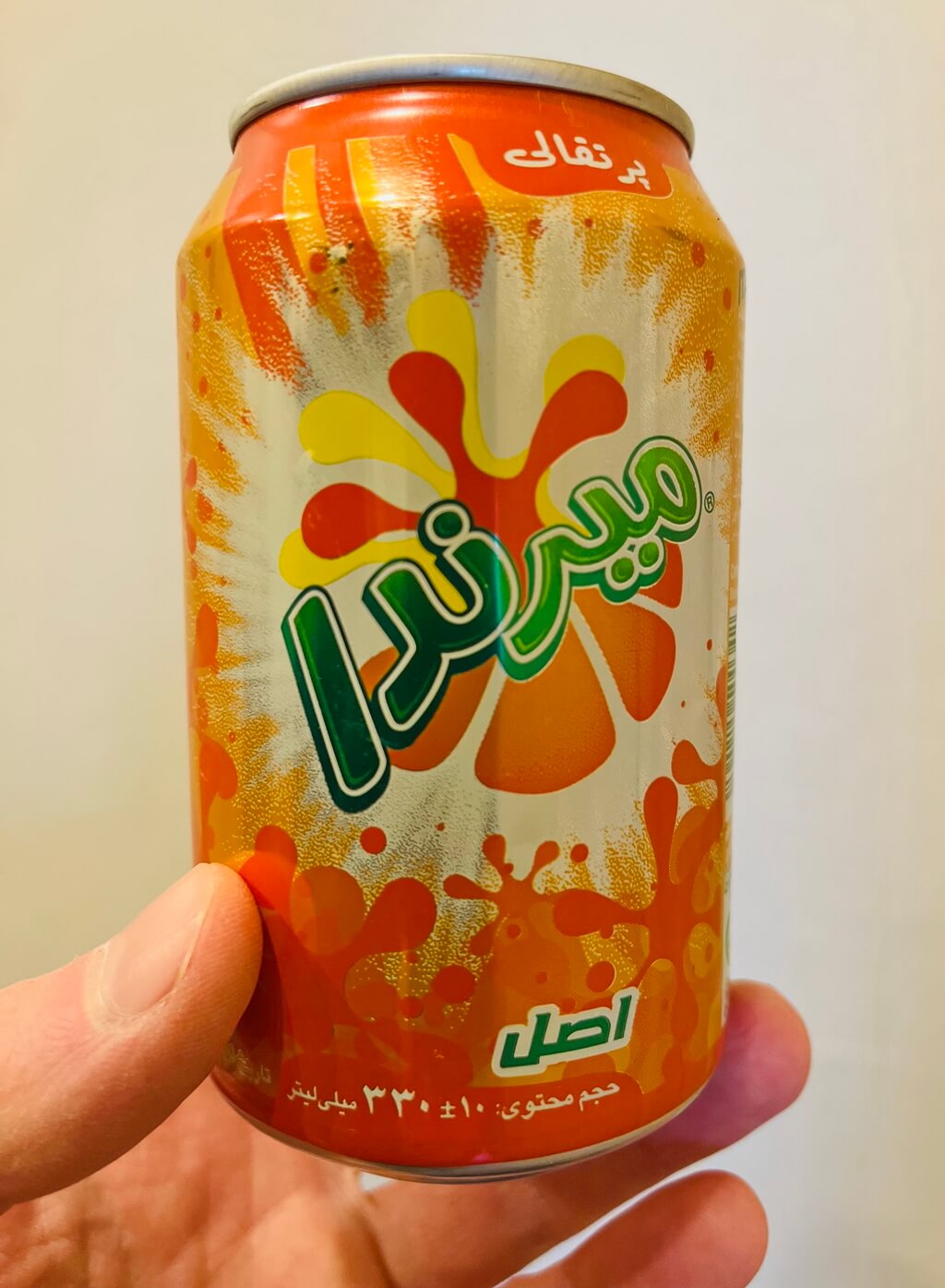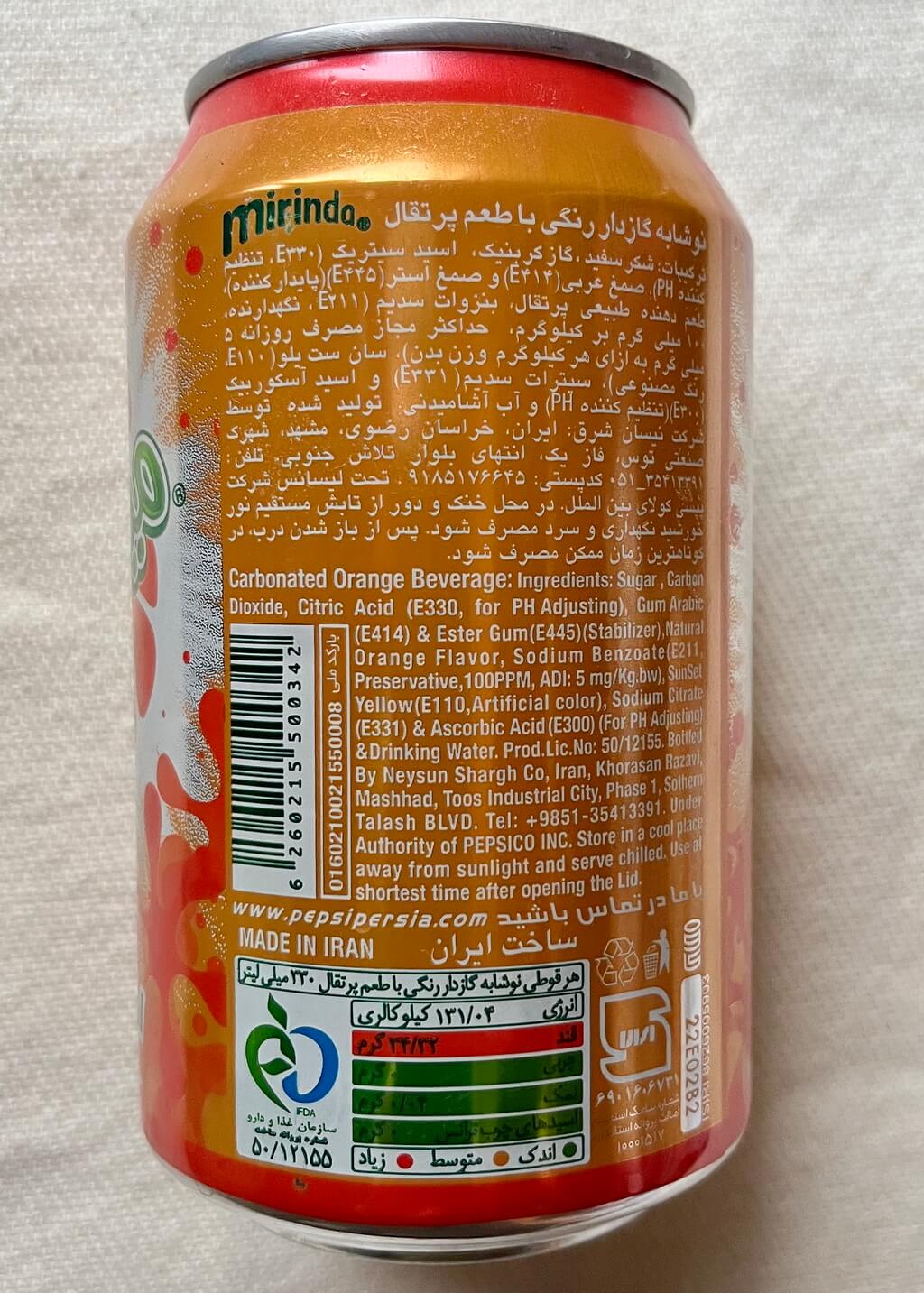St. Petersburg groceries have started to sell Coca-Cola, Fanta, Mirinda, Sprite drinks imported from Iran and Afghanistan after the US-based Coca-Cola HBC and PepsiCo had officially shut down its operations in Russia and stopped their direct sales here.
In the middle of November, St. Petersburg residents began to share photos of Coca-Cola, Mirinda and cans of other sodas and lemonades they saw or even bought at local shops. The weirdest thing about it was not the fact that it was Cola or Sprite, but how it looks.

Package contains the writing in Farsi and Pashto, the languages of Iran and Afghanistan which look rather unusual for Russians speaking and writing in the Cyrillic alphabet. The drink is imported from ones of Russia’s allies that continue cooperation with the country after it started a so-called special military operation in Ukraine on February 24 this year.
St. Petersburg Travel Guide found this kind of cola (photo below).

During our short searches we came across a Cola can imported from… Poland.
The same reports come from other regions across Russia, in some of them Coca-Cola etc. from Kazakhstan were seen at shops.
PepsiCo’s production was first launched in St. Petersburg in 1993 when the American company rented facilities from a local beverage maker before it bought facilities in 1999 which had been the company’s core production of a few brands here, including Pepsi, till August this year.
Coca-Cola HBC opened its plant in St. Petersburg back in 1995 when a new, democratic and market-minded Russia was trying to mimic developed Western economies. A permission for building the production facility on the Pulkovskoe shosse (the Pulkovo highway) that can be seen by any tourist arriving in St. Petersburg by plane and going from the Pulkovo airport to the city, was signed by then-deputy mayor Vladimir Putin. The plant was solemnly launched by then-mayor of St. Petersburg Anatoly Sobchak, a great proponent of implementing democratic institutions and wide cooperation with Western nations and companies.
The plant’s assortment also included Fanta, Sprite, BonAqua, Schweppes, and two juice brands.
Ironically, it is Putin’s actions against Ukraine that pushed many international companies to cease their businesses in Russia. Coca-Cola HBC gradually wound down its operations under its brand.
But physically Coca-Cola HBC has not left Russia yet. Its local plants have been sold to a Coca-Cola HBC’s subsidiary Multon Partners that began to produce a drink under the brand of Cola Dobriy (translated as Cola Kind) with a different formulation that, consumers say, tastes almost the real Coca-Cola but as if it is diluted.
PepsiCo seems to have ceased its beverage manufacture completely and remained only in milk and some other food segments.
Until autumn, groceries had been selling inventories of the original drinks, while Russian producers massively started to manufacture their own cola brands. These locally produced drinks taste something like cola, but cannot replicate the real taste, of course. So, the imports from Iran and Afghanistan are meant to return the original taste to the shelf.
Interestingly, the drinks from Iran and Afghanistan are now sold only at small grocery stores, or corner stores. We didn’t find it at Russia’s major retail chains such as Okay, Pyaterochka, and Magnit.
Russian consumers comment in social media that a price for the imports bites. A 300-ml can of a beverage now costs 70 to 90 rubles ($1.16 to $1.5 or 1.3 to 1.45 euro), nearly 30 percent higher than it cost just a couple of months ago. But they seem to have little choice.
UPDATE
New details are emerging. In early December, the business paper RBC reported that a Russian supermarket discounter chain Svetofor (Stoplight) in Moscow and some other shops in the country’s capital started to sell Coca-Cola in its original package that had been before the cease of operations.
RBC’s journalist looked at the package to discover that the drink was produced in October and November at the former plant of Coca-Cola HBC in the city of Rostov-on-Don that’s now run by Multon Partners.
Both companies’ comments have not clarified the situation. A representative of Multon told RBC that the production of original soda is impossible as supplies of Coca-Cola’s concentrate were cut off in the spring. Coca-Cola HBC just responded that it has stopped production in Russia and is not going to restart it in any form.
Well, so far seems like a puzzle.